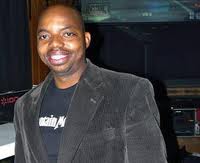 Editor’s Advocacy Note: The Obama Administration has indicated via recent memo and speeches the strong support for International LGBT human rights. As an activist in this arena we implore upon the administration to not mince their words and to show action as well here on home turf! That would include protecting asylum seekers such as Joseph who seek refuge here on U.S. soil. This support should be unconditional by the Administration and should be regardless of the path taken by such immigrants in getting into and staying in the U.S. Melanie Nathan. Please read the Story of Joseph Bukombe.
Editor’s Advocacy Note: The Obama Administration has indicated via recent memo and speeches the strong support for International LGBT human rights. As an activist in this arena we implore upon the administration to not mince their words and to show action as well here on home turf! That would include protecting asylum seekers such as Joseph who seek refuge here on U.S. soil. This support should be unconditional by the Administration and should be regardless of the path taken by such immigrants in getting into and staying in the U.S. Melanie Nathan. Please read the Story of Joseph Bukombe.
by Victoria Sass – SDGLN Contributor 02/03/2012 *
SAN DIEGO — Hiding in plain sight on one of San Diego’s busiest streets is a tiny restaurant called Flavors of East Africa. It is here that the Rev. Canon Albert Ogle and I met with musician and chef Joseph Bukombe who, like the restaurant in which he works, is quiet and unassuming.
Bukombe was released just in time for Christmas from his two-year imprisonment at the Otay Mesa Federal Detention Facility and still faces deportation to his home country of Uganda, where his life could be put in danger. He has the next couple of months to work on a case for asylum, which would allow him to remain in the United States legally.
When asked about his dreams for the future and the life he wishes for himself in San Diego, Bukombe describes his commitment to working hard and staying focused on his job as a chef at the restaurant on El Cajon Boulevard in North Park.
“I’ve always had a dream of owning my own hotel back home in Uganda and I pray that, maybe as situations get better where gay people can live freely, [that could be a possibility]. I would love to open a restaurant back home and hope people back home would come,” Bukombe said.
Hearing him talk about the future in such a positive way, it is difficult to truly comprehend what Bukombe has been through these past two years and the challenges he still faces.
Recounting his time at Otay Mesa, he explains, “Every day you live in fear; you don’t know what’s happening tomorrow. You see people being deported … almost for nothing, you know. So, it was crazy.”
Bukombe’s words are slow and deliberate, as if recounting these events involves delving back into part of his memory bank he has purposefully left behind. This becomes clearer as he recalls what life behind bars was like.
While he was able to resist deportation by refusing to sign the travel documents necessary to send him back to Uganda, Bukombe said his time in detention was marked by depression and anxiety, both of which required psychiatric help. He talked about the darkest period of his detention, and his answer is telling. When he first arrived at Otay Mesa he was told he must sign deportation papers.
“I refused because I knew what I was going to face. It was like signing a death warrant. … And I remember the guy told me, ‘If you don’t sign I’ll charge you with a criminal … charge and then send you to federal prison for four to nine years.’ So I told him, ‘You know what, it’s better. It’s better to spend nine years – I’m already doing two years here.’”
Ordeal worsens after detainees learn that he is gay
Bukombe’s feelings of isolation were exacerbated when his case became well-known among his fellow inmates. He recalls losing a lot of friends, being picked on, and getting into confrontations, an ordeal he says was never-ending.
“You know, [detainees] live there two or three months and then they got deported and then new people come. So you have to go through the same things, like, you’re coming out, coming out; every day, you’re experiencing that,” he said.
Prohibited from using a computer and only granted access to visitors on the weekends, Bukombe admits that his time in detention was extremely lonely but also forced him to be strong. He had friends who hadn’t abandoned him when they discovered he was gay and he says that they created a small family of sorts and that those relationships gave him the strength to go on.
Living among hate was nothing new to Bukombe, though. He grew up listening to his preachers condemning homosexuality in the Pentecostal Church in Kampala, Uganda, which left him with many unanswered questions.
“You know, I was … living with shame. There were a couple of times where I really hated myself for that. I tried to commit suicide, like, three times because I was [so] confused,” he said.
Learning to love himself and a God who doesn’t hate
With the help of pastor Rich McCullen and other pastors at Missiongathering Christian Church in North Park, Bukombe said he began to develop a different, more personal and loving relationship with God.
“I grew up listening to people … condemning and preaching a message of hate to spread the hate,” he said. “You know, it’s like putting a bunch of people in a group and teaching them to go out and hate other people. But Jesus never did that. Jesus preached love and Grace. So I’ve really come to know God in a different way; in a personal way and as a God of love, who loves everybody.”
There is an ease in which Bukombe speaks about his relationship with God and it is clear that this is the main source of his strength and convictions. He has had a long struggle with accepting himself and being comfortable exposing his true identity to the world.
Pressured to get married
When he first moved to San Diego, he was still in the closet and he remembers watching as his friends started to settle down with girlfriends and get married.
“I used to go to a gay bar … almost every day because that’s the only place I really felt at home, you know – among other gay people – and it really gave me happiness. So [my friends] asked, ‘Where’s your girlfriend?’ and I said, ‘I don’t have a girlfriend.’ So I started getting a lot of pressure from the outside, [people saying that I] must be gay,” Bukombe said.
Eventually Bukombe met a woman named Tiffany who he was able to confide in and she became his strongest ally during a very difficult time. They married immediately and although she remains a strong source of support, the two are going through a divorce as Bukombe leads a more honest and self-assured life.
Despite the struggles Bukombe has faced here in the United States, he continues to worry about the safety of his family and friends in Uganda due to the antigay climate there. Almost immediately after Bukombe’s story was publicized in the U.S., Red Pepper, an Ugandan tabloid newspaper, reported on his situation. Coverage of his case back home frightens him because his friends and family are potential targets of those just learning about his sexuality.
Bukombe also points out that within the African community in San Diego, he has faced pushback since they also read publications from Uganda and have similar attitudes towards homosexuality.
“I’m scared because, [in] my everyday life here, people have hate; they hate people like me and people like that. So, it’s hard. It’s hard right now, back home, on my family,” he said.
Urging international support and cooperation
It’s hard to listen to Bukombe’s story and not feel as if life for LGBT people in the United States is so much better by comparison. However, just as soon as this thought enters one’s mind, Bukombe started talking about why it is important for the American LGBT community to get more involved in international LGBT issues and cases like his.
“People in the country I come from look at America and the LGBT family as an example: What goes on here affects people back home [in Uganda]. So, it’d be pretty good if they come together and join because at the end of the day, we’re one people … under one umbrella,” Bukombe said.
Similar to the way his faith has evolved into an inclusive one based on love and grace, so too does Bukombe regard the LGBT community. It is one community that has brothers and sisters from around the world. And while we might be struggling for different things in different places, we can all work together to affect change through compassion and understanding. And he has a message to others in similar or more severe conditions than his.
“I just want them to be strong and … though we may never meet face to face I just want them to know that they are loved and they’re cared for and they will be alright.”
* SDGLN exclusive reprinted with permission of SDGLN
Victoria Sass is the personal assistant of the Rev. Canon Albert Ogle of St. Paul’s Cathedral in San Diego.. He is president of St. Paul’s Foundation for International Reconciliation. Donations to the foundation can be made by clicking HERE.
Editor’s Note: The Obama Administration has indicated via recent Memo and speeches the strong support for International LGBT human rights. As an activist in this arena we implore upon the administration to not mince their words and to show action as well. That would include protecting asylum seekers such as Joseph who seek refuge here on U.S. soil. This support should be unconditional by the Administration and should be regardless of the path taken by such immigrants in getting into and staying in the U.S.
The Administration must make exceptions for the many gays and lesbians who have had to cover their tracks to ensure their safety, who may have entered or stayed in the U.S. by not complying with rules and regulations. It is a matter of life or death for so many.
More about Joseph on this BLOG
http://oblogdeeoblogda.wordpress.com/?s=joseph+Bukombe&submit=Search





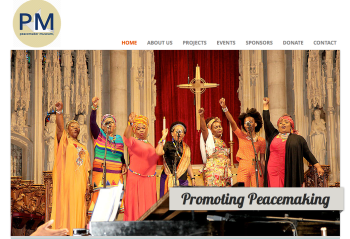




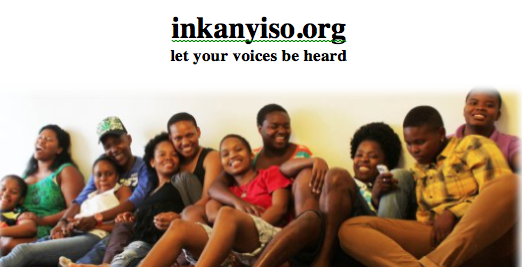







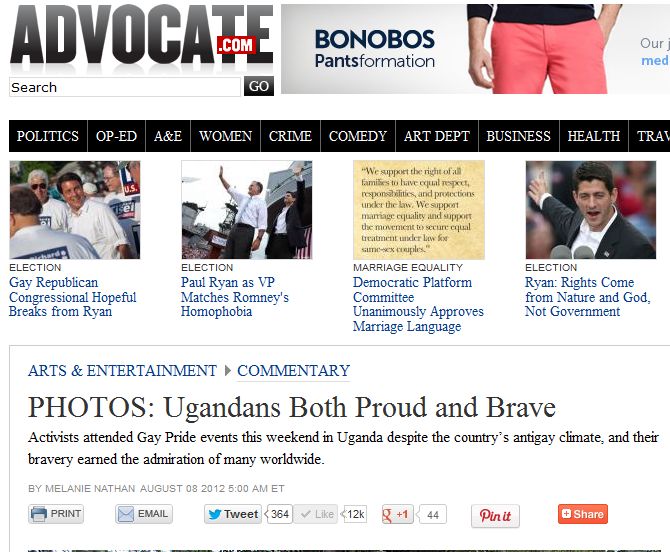
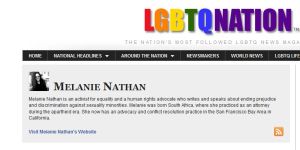
 PoochParkWear customizes hoodies and t-shirts, the good, the naughty, the in between, whether proud or quirky let them be seen. We also offer biker jackets, croc or pleather collars, a variety of collar charms, and our special Zinja beaded collars made by a co-op of HIV-positive South African women, the Sisonke women who weave the beads onto the collars.
PoochParkWear customizes hoodies and t-shirts, the good, the naughty, the in between, whether proud or quirky let them be seen. We also offer biker jackets, croc or pleather collars, a variety of collar charms, and our special Zinja beaded collars made by a co-op of HIV-positive South African women, the Sisonke women who weave the beads onto the collars.

Absolutely disgusting! We must NEVER forget!! Justice and Karma will eventually visit every single person and group, or institution that has been or still is, a participant in these human rights abuses against blameless people!